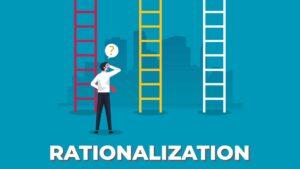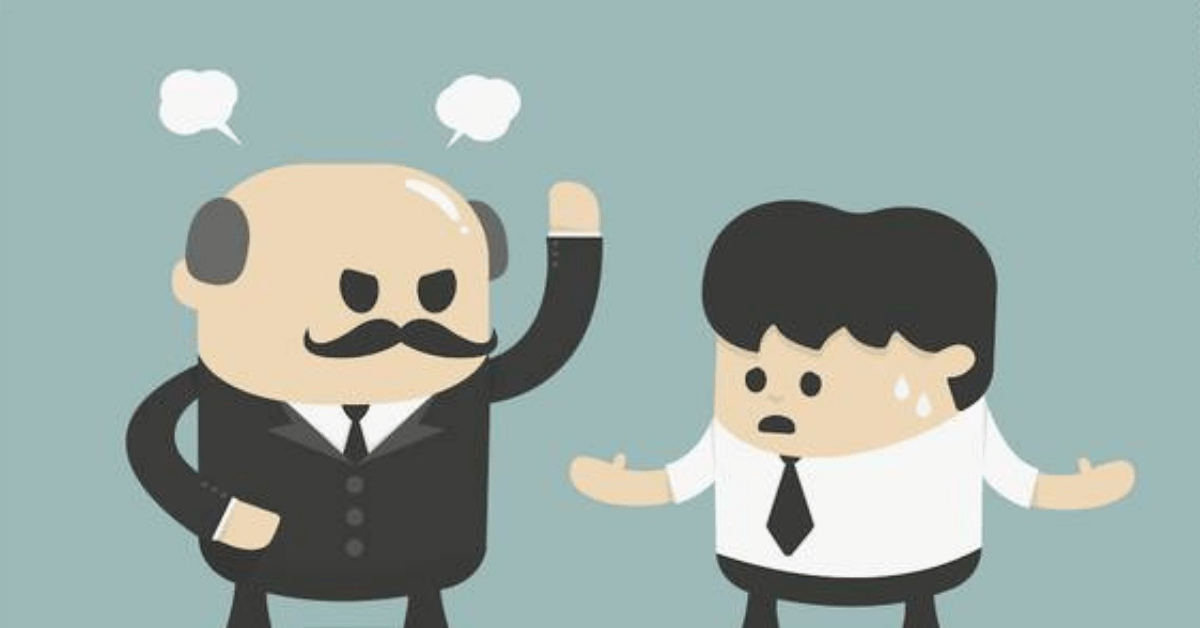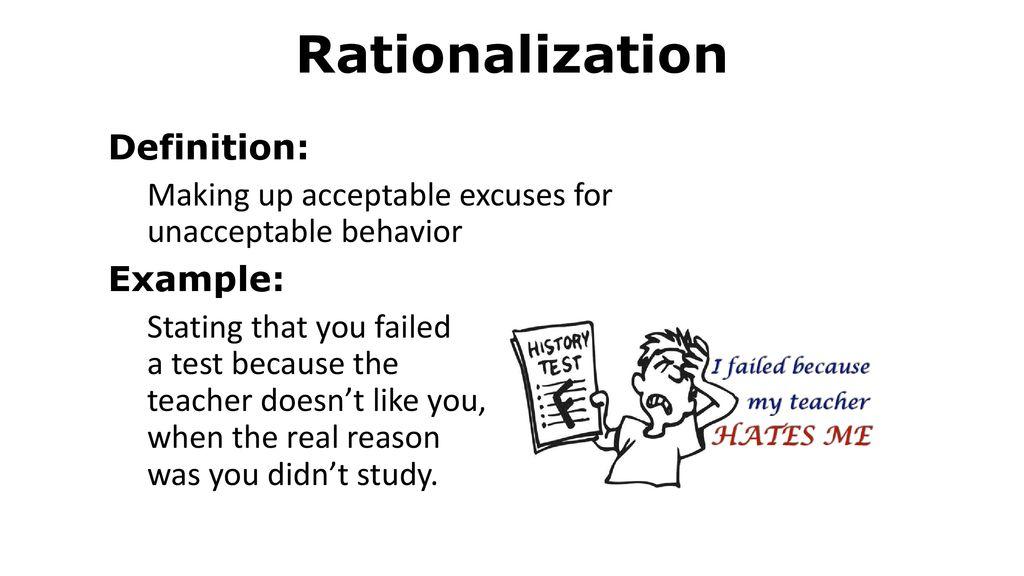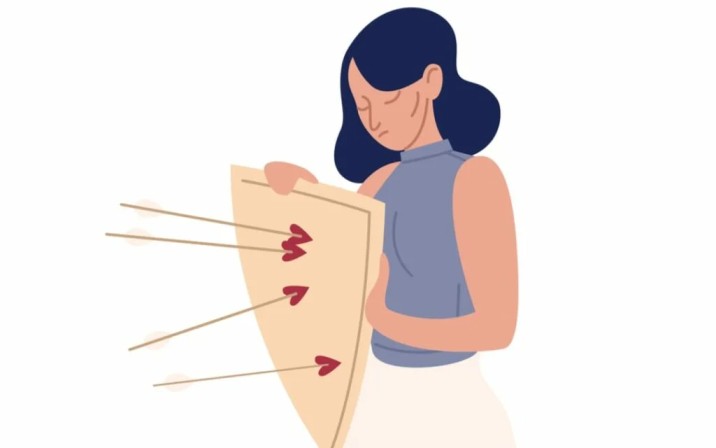In psychotherapy, a defense mechanism is a coping strategy. People use it to protect themselves from unpleasant memories, thoughts, or emotions. Defense mechanisms can be either healthy or unhealthy. They are typically unconscious. In this blog post, we will discuss all rationalization defense mechanism.
Contents
- 1 What Is Defense Mechanism?
- 2 Rationalization Defense Mechanism
- 3 Different Examples of Rationalization Defense Mechanism
- 4 Uses of Rationalization Defense Mechanism
- 5 Benefits of Rationalization Defense Mechanism
- 6 Side-Effects of Rationalization Defense Mechanism
- 7 How To Stop Rationalization Defense Mechanism?
- 8 Conclusion
What Is Defense Mechanism?
Defense mechanisms are psychological strategies that are unconsciously used to protect ourselves from anxiety or stress. There are many different types of defense mechanisms, but all serve the same purpose: to help us cope with difficult situations and emotions.
Defense mechanisms can be broken down into two categories: primitive and mature defense mechanisms.
Primitive Defense Mechanisms
Primitive defense mechanisms are immature or undeveloped psychological coping techniques that people rely on when they feel overwhelmed by stressors in their lives. These strategies may have been useful for our ancestors, but today we generally see them as problematic because many of these behaviors involve denying reality or truth instead of finding healthier ways to cope with emotional pain. People who exhibit a lot of primitive defenses tend to struggle with anxiety, anger management issues, depression, and other mental health problems such as addiction.
Mature Defense Mechanisms
Mature defense mechanisms, also called ego-syntonic defense mechanisms, are psychologically healthy ways to respond to difficult situations and emotions. These strategies involve accepting reality and dealing with difficult feelings in a constructive way. People who use mature defenses generally have better mental health and fewer psychological problems.
Rationalization Defense Mechanism
 Rationalization is a type of defense mechanism. This involves explaining an unacceptable behavior or feeling in a rational or logical way. It is to avoid the true explanation. It comes from the late 1800s verb “rationalize,”. This means to explain something without needing evidence for it. In other words, instead of accepting our feelings and behaviors as they are, we try to justify them with logic so that we feel better about ourselves.
Rationalization is a type of defense mechanism. This involves explaining an unacceptable behavior or feeling in a rational or logical way. It is to avoid the true explanation. It comes from the late 1800s verb “rationalize,”. This means to explain something without needing evidence for it. In other words, instead of accepting our feelings and behaviors as they are, we try to justify them with logic so that we feel better about ourselves.
Rationalization is one of the most common defense mechanisms, especially among people who struggle with anxiety and depression. For example:
When you’re anxious because someone criticized your appearance at work but then tell yourself things like, “She probably had some bad day herself” or “It was just my imagination running wild.” When you cheated on your partner but tell yourself things like, “I was drunk and she started it” or “He doesn’t pay attention to me anyway.” When you overeat but say something like, “Everybody eats too much sometimes. I’ll start a diet tomorrow.”
Different Examples of Rationalization Defense Mechanism

There are many different types of rationalization defense mechanisms, but they all involve justifying unacceptable behaviors or feelings with logic. Some common rationalizations include:
Making Excuses
This type of rationalization defense mechanism involves explaining your behavior with excuses, such as claiming that someone made you do it or putting the blame on other people. For example:
Making Excuses for Bad Behavior – “I’m sorry I was late to work today, but my alarm didn’t go off and my dog chewed through the power cord so there wasn’t any electricity.” Making Excuses for Emotions – “No one else is bothered by this noise. You’re just too sensitive!”
Minimizing
This type of rationalization defense mechanism involves downplaying either a situation or its impact in an effort to reduce feelings like guilt and shame. Minimizing can be especially harmful because it makes us believe our own lies, often making things worse rather than better. For example:
Minimizing a Situation – “It’s not that bad. There are lots of worse things going on in the world.” Minimizing Your Impact – “I’ll never find another job as good as this one, so I guess I should stick it out until retirement even though my boss is abusive and makes me miserable every day.”
Making Comparisons
This type of rationalization defense mechanism involves comparing yourself to other people whom you believe have it much worse than you do. When you compare yourself to others publicly or put them down privately, you can feel better about your own lives. This is by diminishing their value—but only temporarily. In reality, everyone has problems and no life is perfect. This defense mechanism keeps you from being self-aware and seeing things clearly. This often makes them worse rather than better. For example:
Making Comparisons to Others – “I’m grateful that I have a job while so many people are out of work.” Making Comparisons Privately – “At least my husband isn’t doing drugs like all those other men on the block.”
Blaming
Blaming is another type of rationalization defense mechanism involving shifting responsibility for something we’ve done or failed to do to others. It can be very harmful because it prevents us from taking ownership of our own lives and learning from our mistakes. For example:
Blame Shifting in Public – “It wasn’t me! The stupid printer printed the wrong documents!” Blame Shifting in Private – “It wasn’t my fault. I was just following orders.”
Explaining Away
This type of rationalization involves trying to come up with a logical explanation for something that doesn’t have one. In some cases, we may even make up stories about things that never happened in order to avoid feeling uncomfortable or anxious. This defense mechanism can be very harmful because it can prevent us from getting the help we need and dealing with our problems head-on. For example:
Making Up Stories – “I’m so forgetful because I had a traumatic childhood.” Fabricating Reasons – “I didn’t call you back because I was too busy.”
Trying to Look Good
This rationalization involves pretending to be someone we’re not or doing things we don’t really want to do in order to look good in the eyes of others. It’s a way of hiding our true selves from the world and can be very harmful because it keeps us from developing authentic relationships. For example:
Pretending to Like Things – “That new movie was so terrible! But I didn’t want to hurt his feelings, so I just said it was okay.” Faking Interests – “I love playing golf even though it’s really boring.”
Self-Righteousness
This type of rationalization involves feeling morally superior to others as a way of making feel better about yourself. When you engage in self-righteousness, you put yourself on a pedestal and look down on others as if you’re better than them. It can be very harmful because it prevents you from developing empathy and understanding for others. For example:
Looking Down on Others – “I’m not like those other people. I would never do something like that.” Being Holier Than Thou – “I may not be perfect, but at least I’m trying my best.”
Uses of Rationalization Defense Mechanism

There are many different ways that rationalization can be used as a defense mechanism. It’s important to be aware of them so that one can identify when they’re using them and take steps to stop. If you’re having trouble recognizing when you’re using rationalization, ask a friend or family member to help you out.
- This can help to open up the lines of communication and make it easier to get help when you need it.
- One can also use these in one’s daily life as a way to deal with stress or anxiety.
- In some cases, rationalization can also be used as an addiction coping mechanism.
- This is helpful for preventing relapse after treatment and helping individuals stay sober in the long term.
- People may find that they need additional support from their friends and family during this time. It can help them to have someone who will encourage them to keep going even when things get difficult again. This type of encouragement helps people to feel loved and supported while continuing on their journey towards lasting sobriety.
Benefits of Rationalization Defense Mechanism
There are many benefits of using rationalization as a defense mechanism. Some of these are:
Helps To Reduce Stress
Rationalization can help to reduce stress by giving us a way to explain away difficult situations or feelings. This can be helpful for preventing negative emotions from building up and causing problems in our lives.
Helps To Reduce Anxiety
Rationalization can also help to reduce anxiety by providing a sense of control over situations that seem out of our reach. It can make us feel like we’re doing something to address the problem, even if it’s not really solving anything.
Helps With Addiction Recovery
In some cases, rationalization can be used as an addiction coping mechanism. This is helpful for preventing relapse after treatment and helping individuals stay sober in the long term. People may find that they need additional support from their friends and family during this time. It can help them to have someone who will encourage them to keep going even when things get difficult again. This type of encouragement helps people to feel loved and supported while continuing on their journey towards lasting sobriety.
Side-Effects of Rationalization Defense Mechanism
There are many side-effects of using rationalization as a defense mechanism. Some of these include:
Sense of Control
When you use this type of coping strategy, you feel like you have some sense of control over the situation and your emotions even if what you’re doing isn’t really solving anything. It can also make you feel better about yourself by giving you an explanation for why things went wrong. This is easily accepted by others with little to no scrutiny or pushback from those around you.
Makes Things Easier In The Short Term
This may seem helpful in the short term but it doesn’t actually solve any real problems which mean they will likely return again soon after. If you want to be successful at making lasting changes in your life, you need more than just a quick fix.
Impairs Ability To Admit Fault
If you’re not able to admit fault when it’s appropriate, this will lead to many problems in your life that are difficult or impossible to resolve. You also won’t be able to learn from past mistakes and continue on the right path going forward if you refuse to acknowledge what went wrong before so you can move beyond them and make better decisions for yourself moving forward.
Sometimes Results In Failure
Rationalization can result in failure if it goes unchecked since some things cannot be fixed later on down the road without causing more stress and anxiety than they already did when you were originally dealing with them. By addressing these issues sooner rather than later, you can prevent them from getting worse and causing more long-term damage.
May Cause Negative Emotions
Using this defense mechanism can lead to negative emotions like guilt, shame, or regret that you don’t want to experience. It’s important not to ignore these feelings and push them down because they are a natural response when something is wrong in your life. If you try to pretend everything is fine by using rationalization as a coping strategy, it won’t last for very long before the negativity builds up again resulting in more intense reactions with even bigger consequences later on down the road. This will also make any issues harder than ever before since there has already been some time pass which means that resolving them now will take longer compared to if they were still fresh in your mind without too much wear & tear time due to repeated use of this defense mechanism.
How To Stop Rationalization Defense Mechanism?
It’s important that you learn how to stop using rationalization as a defense mechanism. This is in order for you not to fall into old habits or make the same mistakes over and over again. Here are some steps you can take:
Examine Your Feelings
The first thing one should do is examine your feelings. When you’re engaging in rationalization, it means there’s an underlying issue bothering you. This needs attention before moving forward with whatever action plan you’ve created based on this rationalization.
Talk About Your Feelings With Others
This can help to open up the lines of communication. You can make it easier to get help when you need it. One can also use these in one’s daily life as a way to deal with stress or anxiety. In some cases, rationalization can also be used as an addiction coping mechanism. This is helpful for preventing relapse after treatment and helping individuals stay sober in the long term. People may find that they need additional support from their friends and family during this time. It can help them to have someone who will encourage them to keep going even when things get difficult again. This type of encouragement helps people to feel loved and supported while continuing on their journey towards lasting sobriety.
Seek Professional Help
If you find that you are struggling to stop using rationalization as a defense mechanism, it may be helpful to seek professional help. This can provide you with the tools and support you need to address the underlying issues causing your rationalization. You don’t have to go through this process alone. There are many people who want to help you succeed.
Conclusion
In conclusion, rationalization is a defense mechanism that causes many problems in our lives. It can lead to negative emotions, increase the likelihood of failure, makes it harder for us to admit fault when necessary, and leaves people feeling like they have no control over their own life. If you’re struggling with this problem yourself or are worried about someone who might be using rationalization as a coping strategy too often, consider seeking out help. This is through counseling or joining an addiction recovery support group today.
If you are looking for affordable Online Counseling MantraCare can help: Book a trial therapy session


